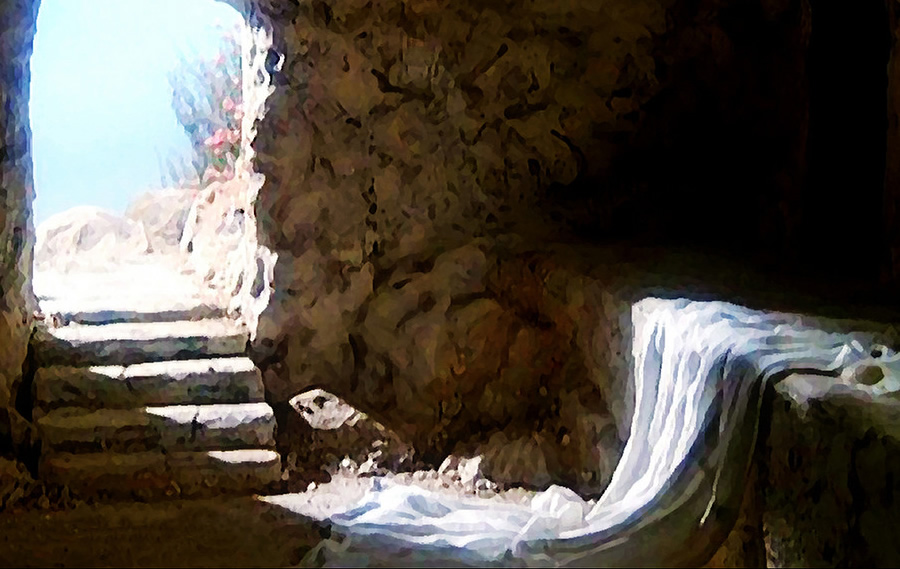
Resurrection Faith Demands Belief
04-08-2018Pastoral ReflectionsRev. Brian F. ManningWe can feel and tell that Spring and beautiful weather is on the way. The now early morning sunlight and the later setting sun tell us that the wonderful mild days of early summer will soon be upon us. This season makes it a lot easier to believe in a God because the beauty of his creation is coming alive again in New England. Trees and shrubs are sprouting and crocuses are blooming in many places. Yet, when the suddenness of tragedy strikes, be it the death of a young person or sudden fast job loss putting someone's home in jeopardy, or people losing their retirement savings due to the unbridled greed of elites, then wonder and confusion rise up in us in rippling waves. We ask how this can have happened. How can God allow this to happen?
How can we believe in resurrection with all these painful "deaths" of sorts around us? We know that Resurrection faith demands belief. Resurrection faith calls our attention to the fact that life somehow comes out of death. It is exactly there in the passage from death to life, we encounter the risen Lord. Contrary to all the religious Easter Cards and pious pictures, the sign of Easter and its abiding joy is not the lily, but the empty tomb. Certainly the empty tomb is a sign of meaninglessness, death, and contradiction; however it is also so dramatically the clearest and most powerful sign of life.
Our first reading which is from Luke-Acts illustrates a most idyllic picture of the earliest Christian community. Everyone is of "one heart and mind." Luke is telling us that unity is an effect, a sign of resurrection, here and now. Where there is such a union, there is life.
In the second passage, John tells us that we are children of God, united in faith, part of the family in Christ raised from death. John also reminds us that our faith in Christ involves accepting and living God's commandments. Our belief gives us a share in the victory Christ has already achieved by his death and resurrection. John insists that our faith is powerful because we have received indeed the Spirit.
One of Jesus' post-resurrection appearances to the apostles composes the Gospel and it is about the story of "doubting Thomas." This last chapter of the Gospel is, in fact, John's very last written words to us. John is encouraging the post-resurrection community (thus us) to acquire a broader faith. The Gospel ends with John telling us that he has carefully chosen the "signs" he has recorded in order to help the Church grow and flourish. Just as importantly, John points out to us to watch carefully for the signs of resurrection in our own lives. In these signs, Jesus Christ is present.
Please recognize that the image of the "wounded" Lord is not simply a matter of artistic representation or aesthetic taste. It is, rather, a matter of faith. Lacking those wounds, the risen Lord is not the crucified Lord. Thomas has assisted everyone, from the talented artists and sculptors to us, to recognize that before a resurrection, there comes a death. Thomas has helped us feel and know that our God is a God who takes human suffering seriously and out of it - even out of its seemingly painful random meaninglessness - can bring wondrous significance and new life.
Know this from listening closely to the story of Thomas, that the risen Lord whom Thomas demanded to behold and examine is the only Lord worth believing in. That Lord wears the wounds of death yet promises and gives to us the healing of life.
BACK TO LIST